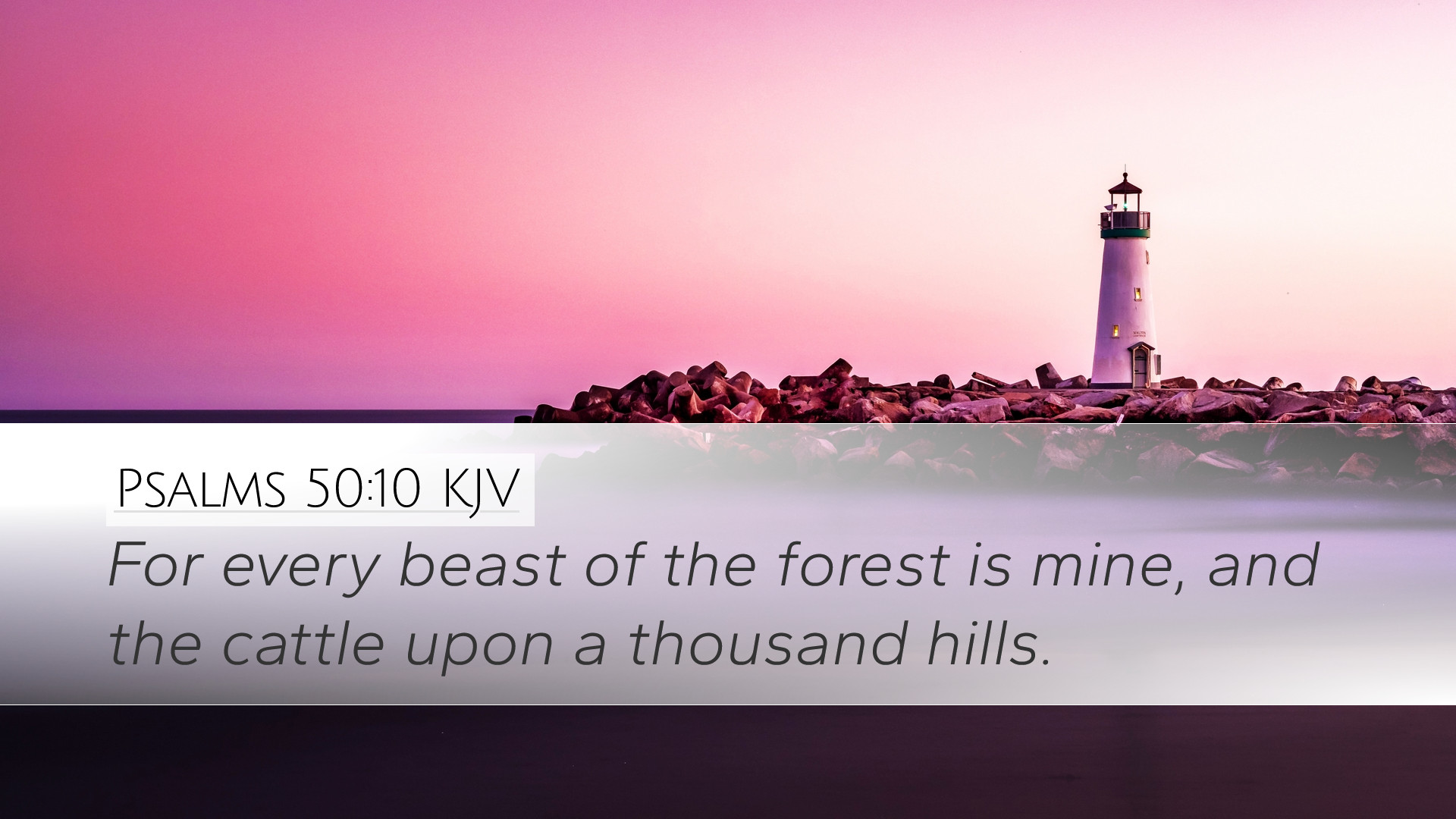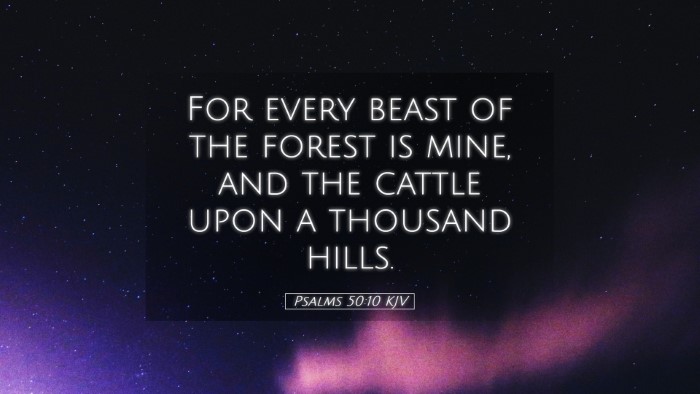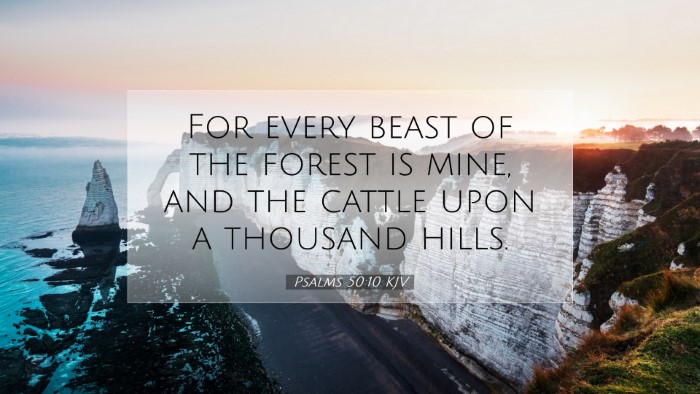Psalms 50:10 - Commentary
Verse: "For every beast of the forest is mine, and the cattle upon a thousand hills."
Introduction
This verse is a profound declaration of God’s sovereignty over creation. It not only affirms His ownership of all earth's creatures but also serves to remind humanity of their place in the created order. Commentaries throughout the ages have delved into the significance of this assertion, exploring its implications for worship, stewardship, and the relationship between God and man.
Exegesis of Psalms 50:10
1. Divine Ownership: The declaration that "every beast of the forest is mine" emphasizes God's position as the Creator and Sustainer of all life. According to Matthew Henry, this verse encapsulates the idea that everything in nature stems from God's creative will. God’s authority extends over the wild beasts of the forest as well as domesticated cattle, which denotes that His dominion is comprehensive.
2. Theological Implications: Albert Barnes notes that the cattle on “a thousand hills” symbolize abundance and wealth. This imagery serves to illustrate that God’s resources are limitless. Thus, the verse invites believers to trust in God’s provision, knowing that He is the source of all abundance.
3. Application to Worship: Adam Clarke emphasizes that understanding God's ownership is fundamental to true worship. When we recognize that all creations belong to Him, it engenders a sense of humility and reverence in our worship. Our offerings and sacrifices stem not from obligation but from a recognition of His sovereignty and generosity.
The Nature of God’s Ownership
God's ownership is not merely a legalistic claim but a relational aspect of His character towards creation. The Psalms often reflect on God's providence and care. As Clarke points out, this claims also serves as a reminder to respect what belongs to God, as we are mere stewards of His creation.
Stewardship of Creation
1. Responsibility of Believers: Understanding that the earth and its fullness belong to God should lead believers to a powerful calling of stewardship. According to Matthew Henry, believers are charged with the duty to manage God's creation responsibly. This stewardship extends to environmental care, social justice, and shared resources.
2. Ethical Implications: Barnes reminds us that our ethical responsibilities flow from this understanding. If God owns all, our dealings with creation, including animals and the environment, must reflect His divine justice and mercy. The implications of this stewardship are seen not only in how we manage resources but also in how we treat one another, recognizing that we all belong to God.
Contrast with Human Attitudes
The verse finds itself in stark contrast with humanity's tendency to arrogance and ownership. In acknowledgment of God’s sovereignty, Henry notes that many people have a self-centered view of resources, wrongly asserting personal ownership devoid of the recognition of divine stewardship.
This misalignment fosters a culture of greed and exploitation, leading away from the biblical ideals of care and sharing. The acknowledgment that “the cattle upon a thousand hills” belongs to God should shape our views of scarcity and abundance in society.
The Message of Trust
1. Assurance in God’s Provision: When we affirm God’s ownership, it reassures us of His provision. Clarke indicates that this perspective can alleviate anxiety about scarcity. When we know that the Lord owns all that exists, we can trust in His capacity to meet our needs.
2. Contentment and Gratitude: Understanding this principle fosters gratitude among believers. Barnes highlights that every good gift comes from God, and recognizing His ownership leads to a spirit of contentment. Instead of envying others, believers are invited to celebrate God’s generosity.
Conclusion
Psalms 50:10 offers a rich tapestry of theological meaning and practical application. The verse serves not only as a declaration of divine ownership but also establishes clear ethical boundaries concerning stewardship, worship, and interpersonal relationships. It challenges believers to live in a conscious awareness of God’s lordship over all creation, inspiring a life of gratitude, responsibility, and trust. As we gather the insights provided by Henry, Barnes, and Clarke, we are reminded that our lives are intricately woven into the fabric of God's creation, and we are entrusted with the profound responsibility of tending to it—all to God's glory.


